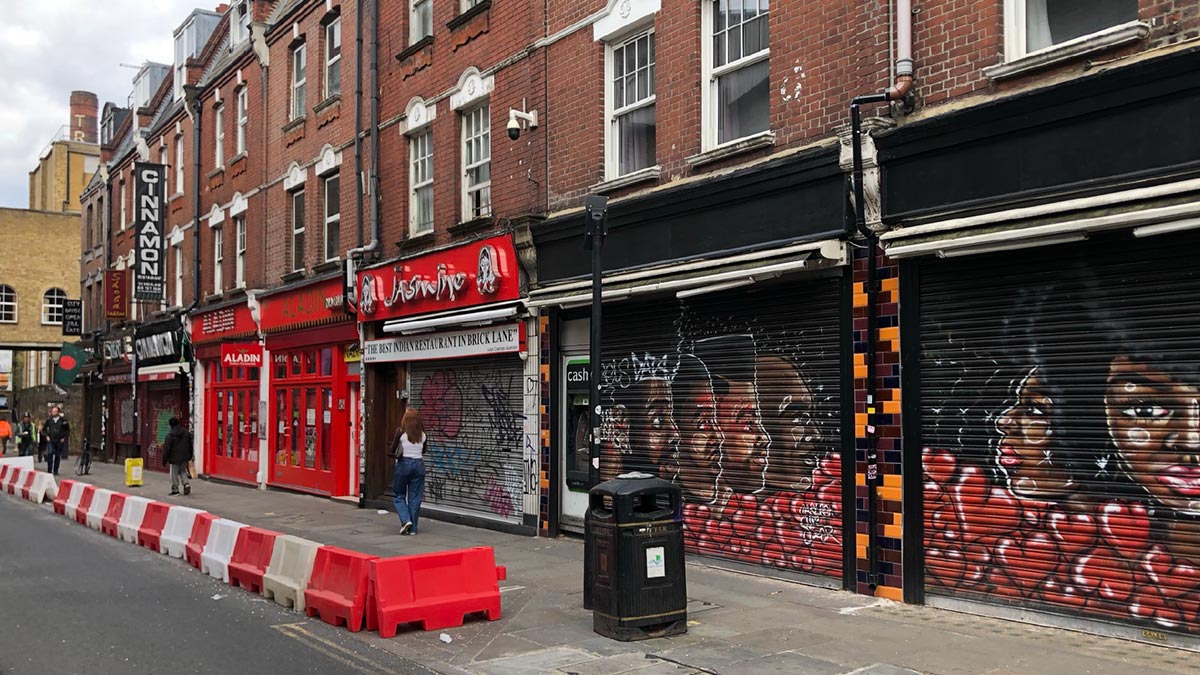
Overview
The Covid19 pandemic and accompanying lockdowns have posed serious challenges for our high streets and the hospitality sector, especially those in our ethnically diverse urban centres. At its peak, high street footfall fell by nearly 90%, and the hospitality sector saw a drop of 90% in turnover in the first few months of lockdown. Streets like Brick Lane, reliant on income from tourism and office workers, have been particularly hard hit.
What impact has the pandemic had for the businesses in Brick Lane? And how have such businesses, their owners and workers, responded?
In December 2020 and again in April 2021, the Beyond Banglatown research team returned to Brick Lane to explore the impact of the pandemic and lockdown on the street, its businesses and people. The overall story is of a stark economic downturn. Many business owners, especially Bangladeshi restaurateurs, referred to Brick Lane during lockdown as ‘a ghost town’. While there are signs of renewal, the future of Brick Lane, and Banglatown, looks uncertain.
The research was conducted as part of the ESRC funded research by the Centre on the Dynamics of Ethnicity on ‘Racial Inequality in a Time of Crisis’.